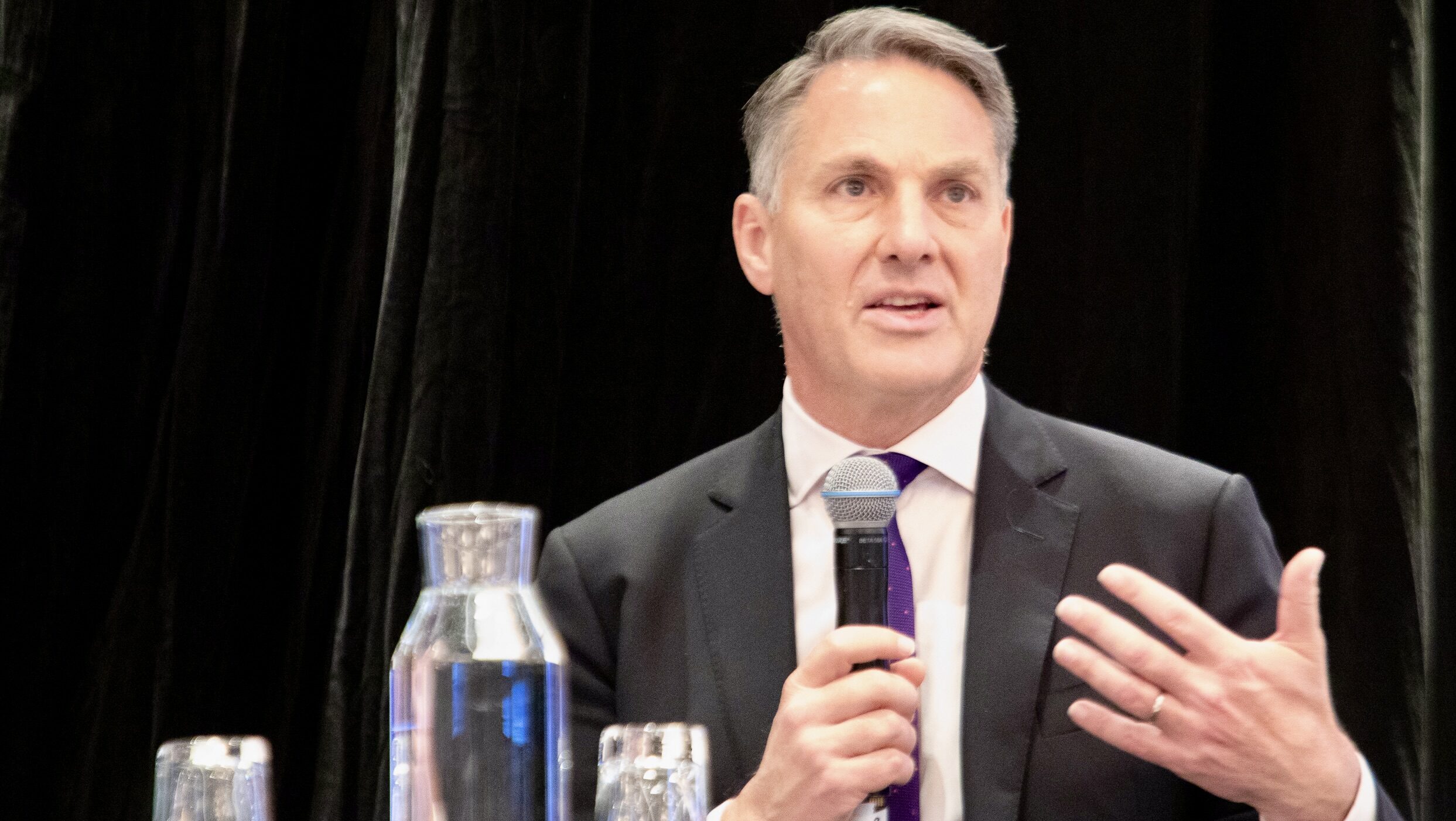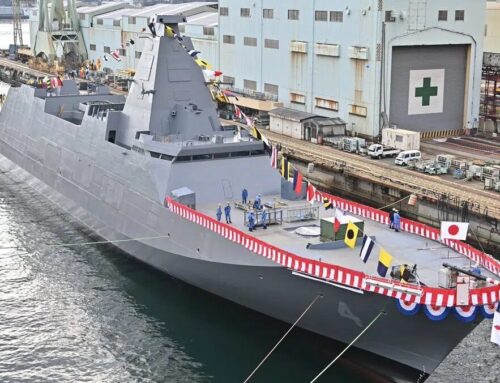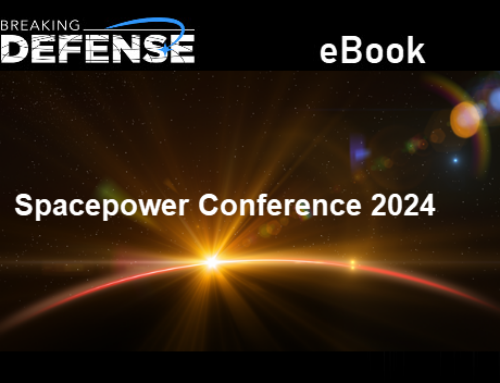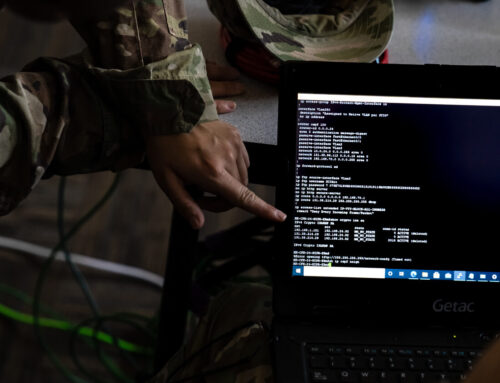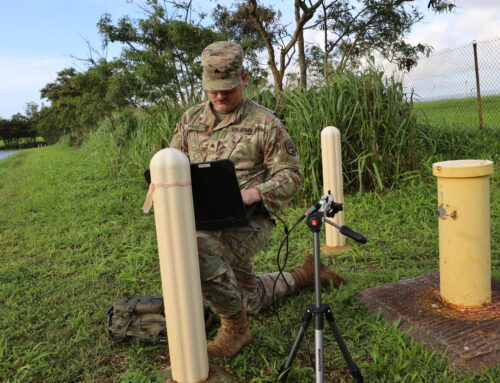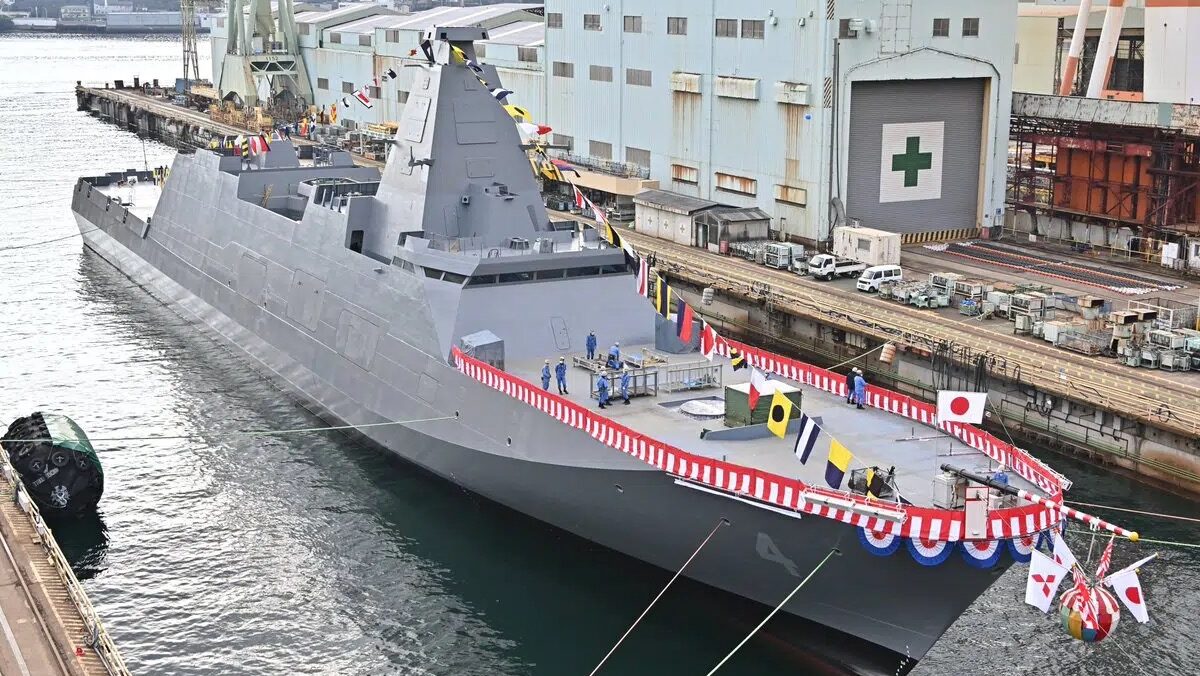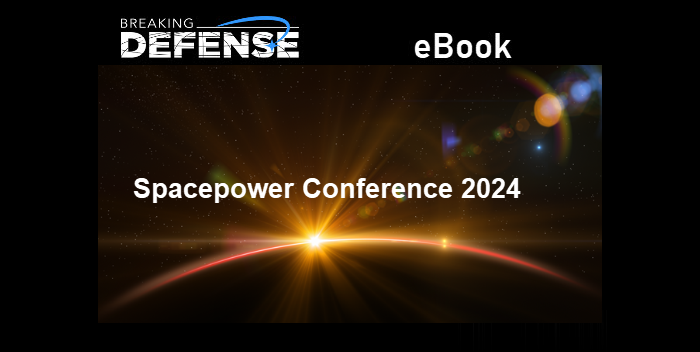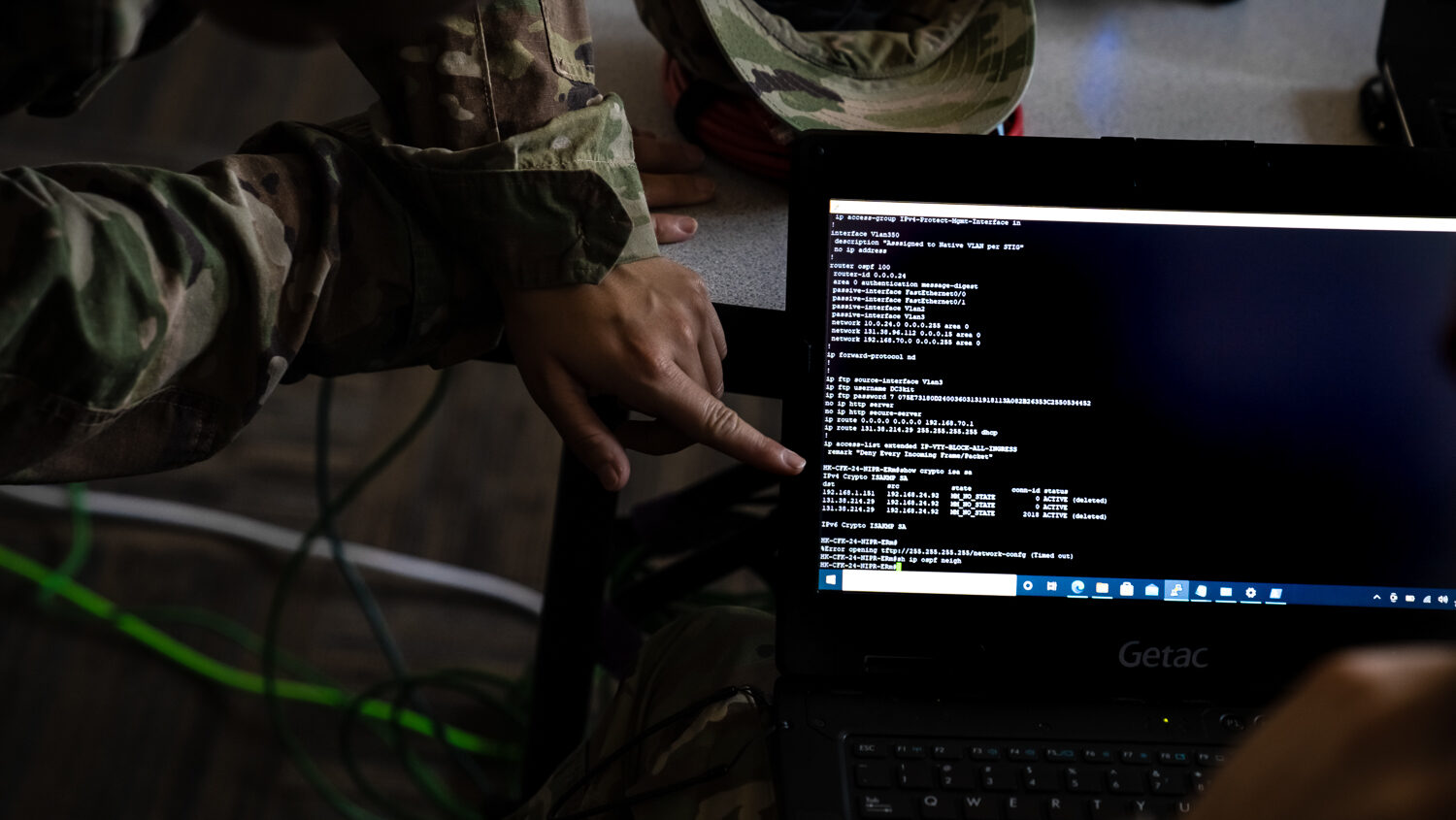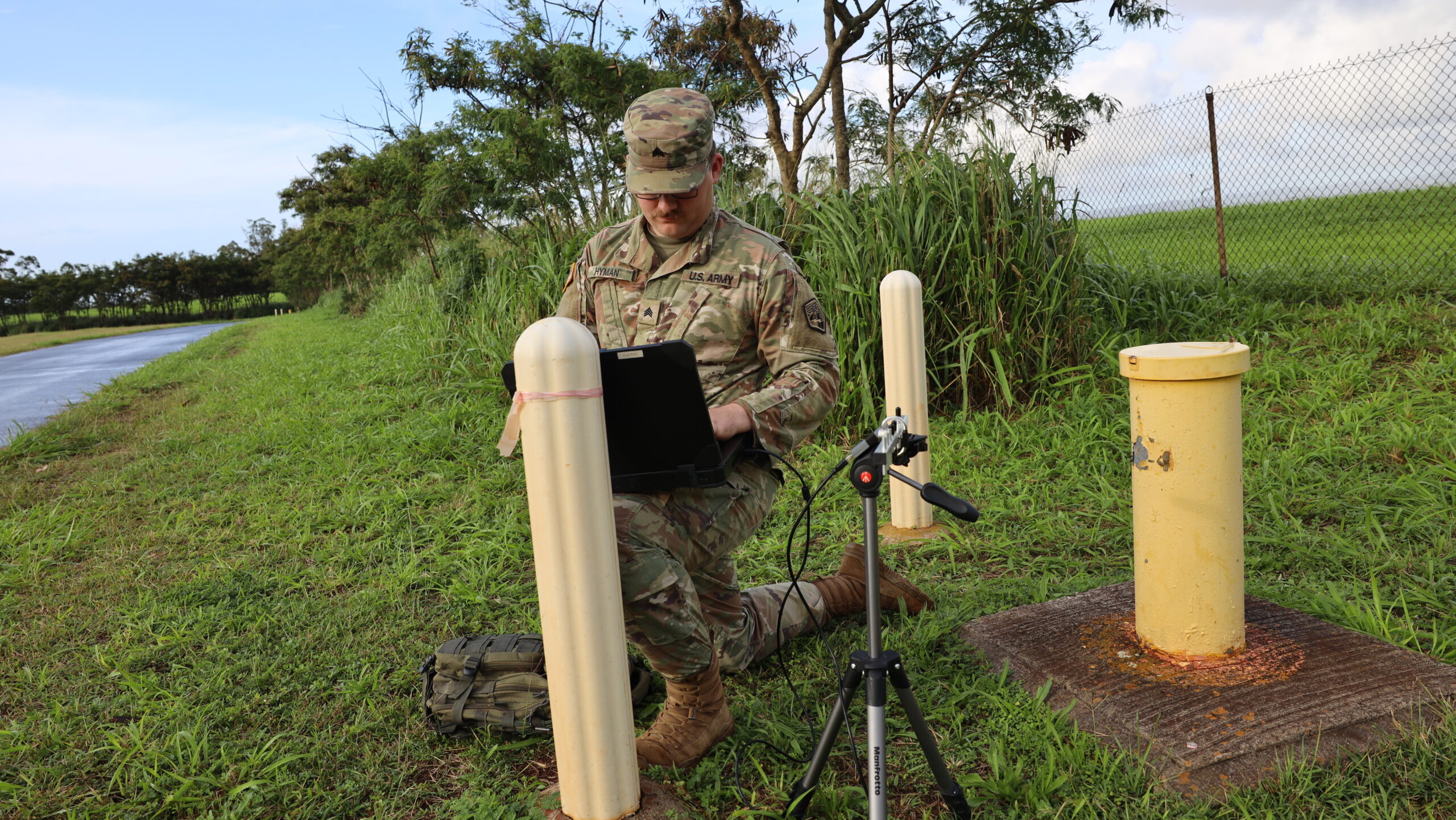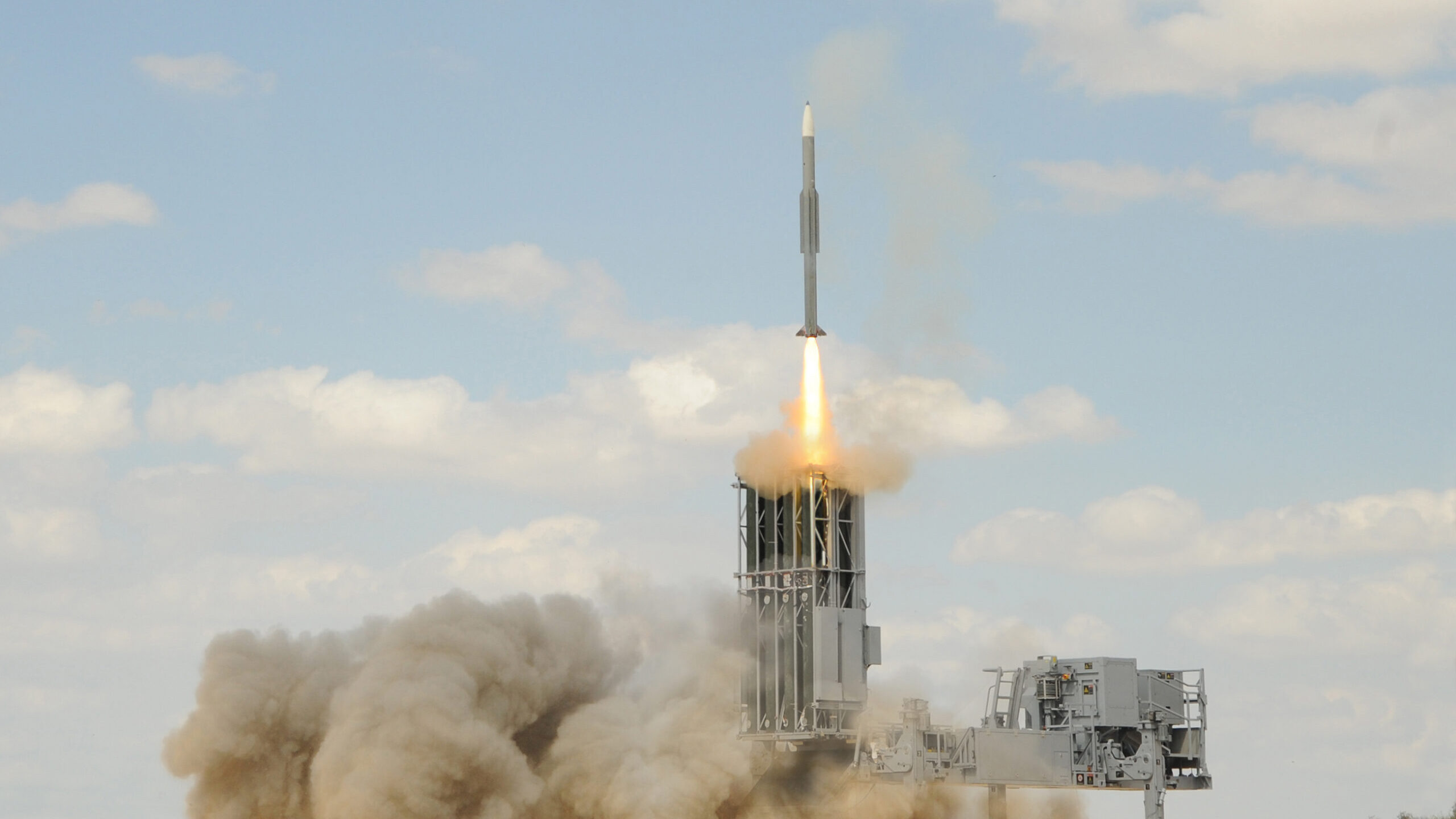Australian Defense Minister Richard Marles at biennial Submarine Institute of Australia conference. (Nic Douglas)
CANBERRA — Australia’s military and its ministers need to share more information with the public and press about the AUKUS plan for Australia to buy and build nuclear-powered attack submarines, key members of the coalition said Wednesday, in what would represent a shift in how the government here tends to interact with the public on defense issues.
The defense minister, the UK high commissioner to Australia and a raft of industry experts spoke at the biennial Satellite Industry Association here and urged the government and military to reach out to the Australian public, especially communities that will be shaped by the vast effort, estimated to cost $368 billion AUD over the next 50 years.
“There needs to be a holding to account of government, of people sitting in this chair, constantly,” said Defense Minister Richard Marles. “That needs to be done with intelligence, clearly, but please bring that intelligence to the table…..We need to know where balls have been dropped, where cracks are opening up. We need to know that so that we’re doing everything we can to pick them up again, to fill in those cracks, to make sure that we are able to keep this thing on track.
“We are not going to get through this without intense scrutiny, so give it to us,” he said.
Support for the AUKUS plan has slipped by 5 percent since it was announced three years ago and public criticism and questioning of the effort has ramped up over the last year.
Australia “has been a little bit slow off the mark,” in communicating with the public about AUKUS,” Tracey Hanley, deputy director of the Defense Research Institute at University of New South Wales and one of Australia’s leading nuclear experts, told Breaking Defense at the conference.
“However, that is gaining traction now, and we need to get the media behind why AUKUS is so important to our nation, and that then brings people alongside, because they are starting to hear why it’s so important.” Hanley added, “Openness on things that they can be open about is absolutely crucial for gaining valid social license in the community.”
While a more open approach to public information sounds good on paper, that will still require a cultural shift. A more typical approach to the media was seen at the beginning of the conference, when the head of the Royal Australian Navy chastised coverage of both the current fleet of Collins-class boats and of AUKUS. News broke last week about the fact that only one of the Collins subs was able to go to sea. (The Department of Defense later issued a statement that a second boat could sail if necessary.)
“They are meeting the operational requirements of the Australian navy,” Vice Adm. Mark Hammond said of the Collins. “You don’t see the headlines in the media when we have two submarines at sea at the same time, as we did just a few months ago. Or, when two subs are operating thousands of miles from home port as I ordered just a few months ago.”
He cited what he called a “pattern of criticism” of the sub fleet and the prospects of AUKUS. “To the critics I say, where we have succeeded in the past we will again.”
One expert at the conference, who asked not to be identified, mocked Hammond’s comments, noting that what he had described were basic requirements for the fleet. Also, the expert said, how could it be reported when the Navy had never told reporters about it.
Building ‘Social License’ Around AUKUS
The British High Commissioner, Vicki Treadwell, told the audience of several hundred uniformed and civilian gathered that “a big part” of what they could do “outside this room” would be to pursue the “social license” because “this new endeavor for Australia requires the Australian people to believe in it, to understand its strategic importance.”
Social license is a collection of techniques to inform, reassure and engage the public in complex and, in the eyes of some, potentially dangerous projects they might otherwise support.
The UK envoy added, “You all have friends, you all have families. You all have children. Talk about this endeavor in a positive and constructive sense, to explain why Australia is pursuing this. It’s not the job of government alone.
Referencing local media questioning whether the recent fire at one of Britain’s nuclear submarine yards had derailed or delayed the AUKUS effort, Treadwell said, “There is a role for the media to tell the right story — not to look for the sensational aspect of the fire, but to talk about the jobs and to talk about the new technology that will be transformational.” (BAE Systems issued a statement saying the fire had “limited impact.”)
She also gave the example of how British communities near naval bases, once engaged, help improve security by reporting suspicious activity to the military.
An intriguing idea was mentioned by the US ambassador to Australia, Caroline Kennedy. After comparing AUKUS in complexity and daring to the moonshot proposed by her father, President John F. Kennedy, Kennedy briefly discussed the idea of an AUKUS visa after noting challenges to the US sub industrial base.
“We need to expand and strengthen collaboration between governments, industry, academia, to speed up and truly support a trilateral submarine industrial base and put more allied, conventionally armed, nuclear powered submarines to achieve one of AUKUS’ greatest and most enduring benefits, the ability to leverage the manufacturing capabilities of all three nations for our common benefit,” Kennedy said.
“Right now, America’s sub industrial defense industrial base is challenged. We can’t produce all the components needed to construct submarines. We need Australian companies to get into the Virginia-class vendor base. Currently, only a handful are going through the defense industry vendor qualification process, and we need more of you to do that.”
Asked about the idea of an “AUKUS visa” during a brief chat with reporters at the conference, Marles said “certainly we need to be looking at ways in which we can have an easier facilitated movement of people between our three countries who are working on this program. We are working with the governments of the US and the UK to look at how that can be done.”
He pointed to the fact Australian submariners and industry personnel are now working in both the US and UK.


